Travel in South Korea will drop you into a land of rich traditions and modern marvels, where age-old cultural norms coexist with some of the globe's most cutting-edge tech. However there are certain things to avoid doing in Korea, to limit any embarrassing social faux pas.
As you plan your trip, it's helpful to be aware of Korean etiquette, or at least the particulars that even visitors are expected to adhere to. South Korea's culture is deeply rooted in Confucian principles, which place a high value on respect for elders and authority.
This is reflected in everyday interactions, where certain respectful behaviors are expected. For example, when addressing someone older or of higher status, it's important to use the correct honorifics and formal language.
Even a simple task like receiving a gift or business card requires both hands as a sign of respect. Each of these practices stems from a deep-rooted value system that cherishes harmony and respect within the community, so below I cover the most important things to know before visiting South Korea.
While some of the conventions mentioned below are being challenged by young Koreans nowadays, you still have to be mindful if you don’t want your trip interrupted by angry older Koreans calling you out.

Jump to:
✈️ Basics of Travel in South Korea
Visa: Most travelers will need a K-ETA (Korean Electronic Travel Authorization), applied for at least 72 hours before departure. If you needed a visa before, you'll need a K-ETA now. Note that from April 1, 2023, to December 31, 2025, passport holders from 22 countries, including the US, UK, Canada, and several EU nations, can visit visa-free – no K-ETA required!
Currency: South Korean won (KRW or ₩)
Arrival in Korea: all international flights arrive at Incheon Airport (ICN), one of the best-rated airports in the world. It usually takes about 1 hour to get through security & pick up checked bags.
Getting Around: Korea has an extensive & reliable public transport system. A refillable T-Money card is your ticket to buses and trains across the country; you can buy and refill yout TMoney card at any subways station or convenience store in Korea.
Internet & SIM Cards: Rent a Wi-Fi egg or purchase a prepaid Korean SIM card at the airport, available for up to one month of connection.
Travel Insurance: always recommended, though some credit card companies offers limited coverage when booking.

🇰🇷 Understanding Korean Culture
As you immerse yourself in Korean culture, be mindful of the intrinsic respect for seniority and the emphasis on proper social etiquette in Korea. It's a rich tapestry woven from centuries of historical influence and values that continue to guide daily life, even in the busy heart of Seoul.
Respect for Elders
In Korea, showing respect for elders is paramount. It's customary to greet older individuals with a polite bow, as a sign of acknowledgement. The depth of your bow conveys the level of respect: the deeper the bow, the greater the respect.
When speaking to an elder in Korean, you're always expected to use honorific language, a sign of the importance of seniority in social structures.
Importance of Etiquette
Korean etiquette is a form of art, with its formality embedded in various aspects of life. For instance, business cards are still common and popular in Korea, and there's a proper way to exchange them - with both hands, head lightly bowed.
Receiving anything should be done with both hands as well, to show appreciation and respect. Dining etiquette also holds significance; you wait to eat until the eldest at the table starts, and it's polite to offer to pour drinks for others, though never for yourself.
Role of Tradition
Tradition plays a vital role in Korean life, influencing everything from family celebrations to business practices. You'll notice many historical festivals and ceremonies are still celebrated widely, honoring the country's rich history and ancestral heritage.
For instance, the Lunar New Year (Seollal) and Chuseok, Korea's autumn harvest festival, are times when even company workers get the holidays off work. They're holidays meant for honoring ancestors and showcasing traditional customs, like the wearing of hanbok, the traditional Korean outfits.
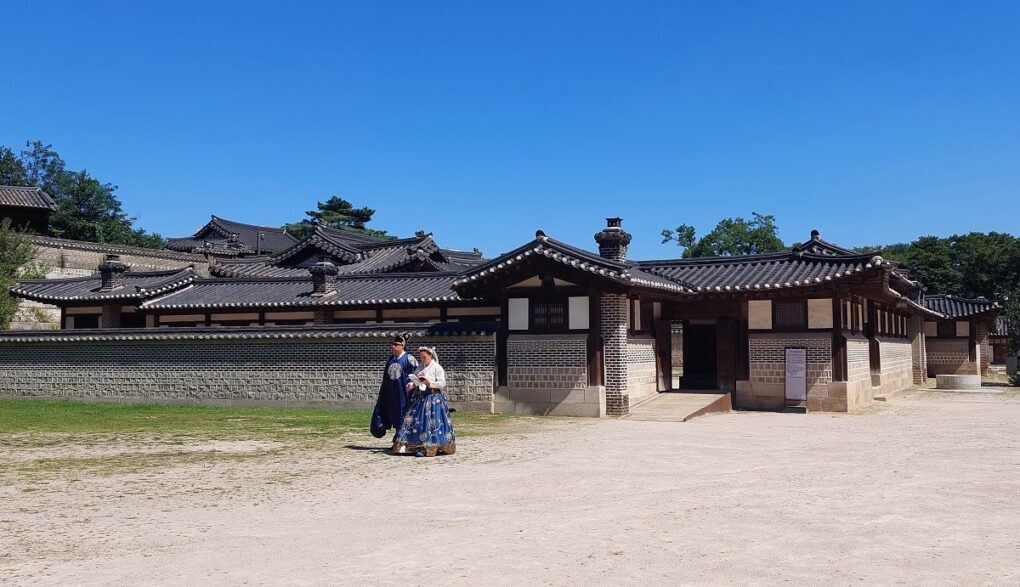
🔇 Proper Public Behavior
When you're traveling through South Korea, it's important to be aware of local customs and courtesies, especially in public settings. Whether you're using public transport, enjoying a meal, or out with friends, being more quiet and mindful is customary.
Public Transportation Conduct
While using public transport in South Korea, such as the bus or subway, speaking in a low volume is considerate; there's a stereotype of foreigners as loud and brash, and public transport is always the example used.
It's good practice to avoid loud conversations or music that might disturb fellow passengers - you'll quickly note how quiet the Korean subways systems are. Additionally, sitting in priority seats is a serious faux pas unless you fit the criteria; these spots are reserved for the elderly, pregnant women, and people with disabilities.
Dining Etiquette
At the dining table, patience is a virtue. In South Korea, it's considered polite to wait for the oldest person to begin eating before you start your meal. Don’t pour your own drink, either; it's customary for the youngest person at the table to pour for everyone else.
Hailing a Cab
Usually we hail a cab with our palms up, similar to waving hi to a friend. Unfortunately, this gesture is identical to how Koreans call their dogs in Korea. First impressions matter, so if you try to hail a cab using this motion, there’s a big chance cabs will ignore you, not to mention many cabs these days rely on getting rides only from KakaoTaxi.
Taxi drivers don’t care about money as much as they care about politeness. To hail a cab or any other mode of transportation in Korea, stick your hand facing down, and move your hand toward you. Or just hold out your kyutong transportation card, hand tilted slightly downwards, just in case.

Whistling at Night
Most especially if you’re walking alone in a sparse alleyway, whistling, singing, and even clapping is said in Korea superstition to invite evil spirits and hissing snakes. Most Koreans, therefore, walk around at night rather quietly, often with headphones in.
Even if this isn’t true, darkness creates fear, and some Koreans walking with you might feel that you are intentionally putting everyone at risk.
Staring at People
Even if that person looks like your favorite K-Pop idol, please don’t stare at people. It’s disconcerting, and it can make people feel anxious, especially because staring is considered rude in Korea. Unfortunately, this does not apply to vice versa.
If you look very different, expect some locals to stare at you - but they won’t usually ever talk to you because they fear you might ask them something in English.
Public Displays of Affection
In South Korea, public displays of affection (PDA) are seen differently than in many Western cultures. It's generally best to err on the side of caution and limit PDA to holding hands or brief hugs.
More overt displays can make those around you uncomfortable, so being reserved is the way to go when showing affection in public.
Talking Loudly in Public
While this is pretty standard, whenever we’re with friends, we sometimes forget to converse in our ‘indoor voices’. Talking loudly is only okay if you have reached an age when people can’t yell at you anymore, or you’re just losing your hearing and need to shout, regardless.
I’ve certainly been reprimanded on the train because my mere voice made someone uncomfortable.
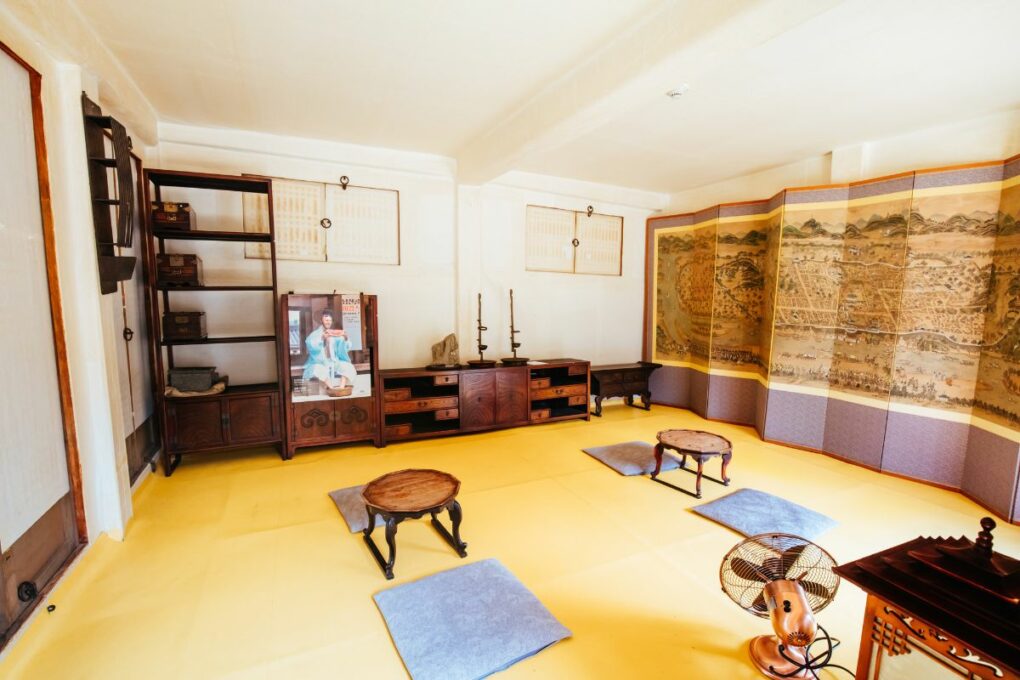
🕶️ Attire and Grooming
When packing for a trip to Korea, you'll want to be mindful of both social norms and practical considerations regarding clothing. For instance, you may want to bring indoor slippers for getting around your guest house or Airbnb (not applicable in hotels), as its improper to wear shoes inside in Korea.
Clothing Dos and Don'ts
In Korea, dressing according to the context is crucial. Your clothing choices should lean towards modesty and formality, especially in professional or traditional settings. It's common to see short-shorts and skirts in major cities, but exposed shoulders and low-cut tops are generally seen as inappropriate.
Make sure to pack a variety of clothes that can handle Korea's distinct seasons, with particular attention to not wearing too revealing clothes when the temperature rises. It's rare to be invited to a Korean home, but if visiting someone's home, it's polite to take your shoes off before entering.
Once you enter the house, you walk into a clean space, so failure to remove your shoes disrespects the whole home and the people inside it. Plus, most Koreans sleep on the floor, especially when the ondol (indoor floor heating) is on, so it’s like walking on their bed in sneakers.
Hosts may provide guest slippers for you to wear indoors, especially in schools or small businesses, so wearing clean socks without holes can save you from potential embarrassment. While exploring the cities, wear comfortable footwear since you'll likely do a lot of walking.
Public Bathhouse Etiquette (Spa)
Korean bathhouses or spas, known as jjimjilbangs, are a staple of the country's culture and require specific attire. Upon entering, you're expected to remove all your clothing and wear the provided bathhouse clothing or robes, or even a regulation spa bathing suit.
The outfit is usually loose-fitting shorts and T-shirts for lounging in the common areas, though some places have a common pool area. In the gender-separated bathing areas, nudity is the norm, and you should be prepared to be comfortable being completely undressed around others.
Do not bring your outdoor shoes into the bathing area; instead, use the designated bathhouse slippers, if you wear anything at all. Remember, proper grooming before entering the baths, such as showering and refraining from wearing heavy makeup or hair products, is both polite and hygienic.
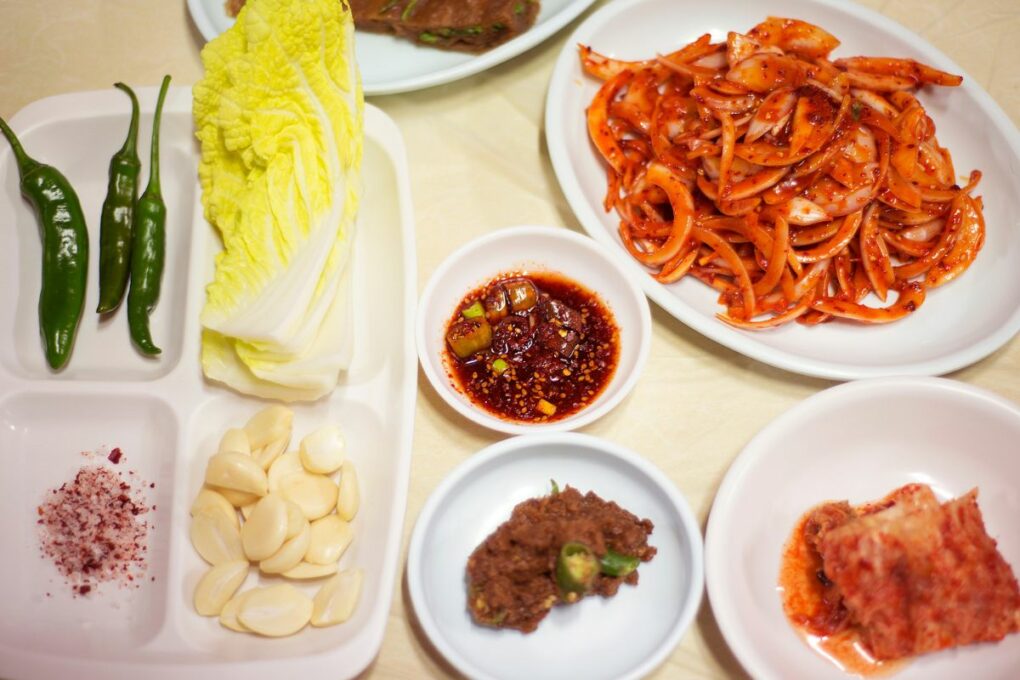
⭐ Social Interactions
When you meet or have a meal with someone in Korea, it's important to consider their age and how you address and behave towards them.
Greetings and Meetings
When you first meet a Korean person, especially someone older or of higher status, it's crucial to greet them respectfully. A slight bow, possibly accompanied by a handshake, demonstrates your understanding of Korean customs.
When you shake hands, using both hands or supporting your right forearm with your left hand is considered polite and underscores the importance of respect in Korean society, especially towards your elders and those of presumed seniority. Refrain from too strong a grip or too brisk a motion; a gentle but firm handshake will suffice.
If you're in a group setting, it's customary to wait and allow elders to initiate greetings; they hold a revered place and acknowledging their seniority through patient and deferential behavior is expected. Remember that acknowledging someone's age and position through these actions isn't just polite, it's a fundamental part of social interactions in Korea.
Body Language and Gestures
In South Korea, body language and gestures can convey deep respect or severe rudeness, often relating to how you use your hands. When passing items such as money or a glass, always use two hands as a sign of sincerity and deference. Handling items with one hand can be seen as dismissive or disrespectful.
Giving Gifts
Locals consider the number 4 unlucky because it sounds similar to the Korean word for “death.” Hospitals and apartment buildings sometimes even skip this floor number, because some Koreans will refuse to stay in rooms or pay equal amounts of rent for rooms on the 4th floor That’s why, as much as possible, give a gift in threes.
Greetings (no banmal with elders)
My Korean professor froze the first and only time I replied “annyeong” to her without the “haseyo.” I immediately realized that I must have said something wrong. “Annyeong” may be a shortcut, but it is also the most informal way to say “hi” to people, and formality is important in Korean culture.
Remember that the only time you can use informal language is when you share the same age or if the person you are talking to is younger. Seniority is everything, but thankfully they are becoming more patient with foreigners in situations like these.
Asking About Your Age
I recall being asked this for the first time by my Korean boss during our first meeting. I was worried about it at first since, of course, I didn’t want to talk about it – but to Koreans, this is important because this determines how formally they will speak to you.
If they find that you are significantly older or younger than them, expect their way of speaking to you to change entirely.
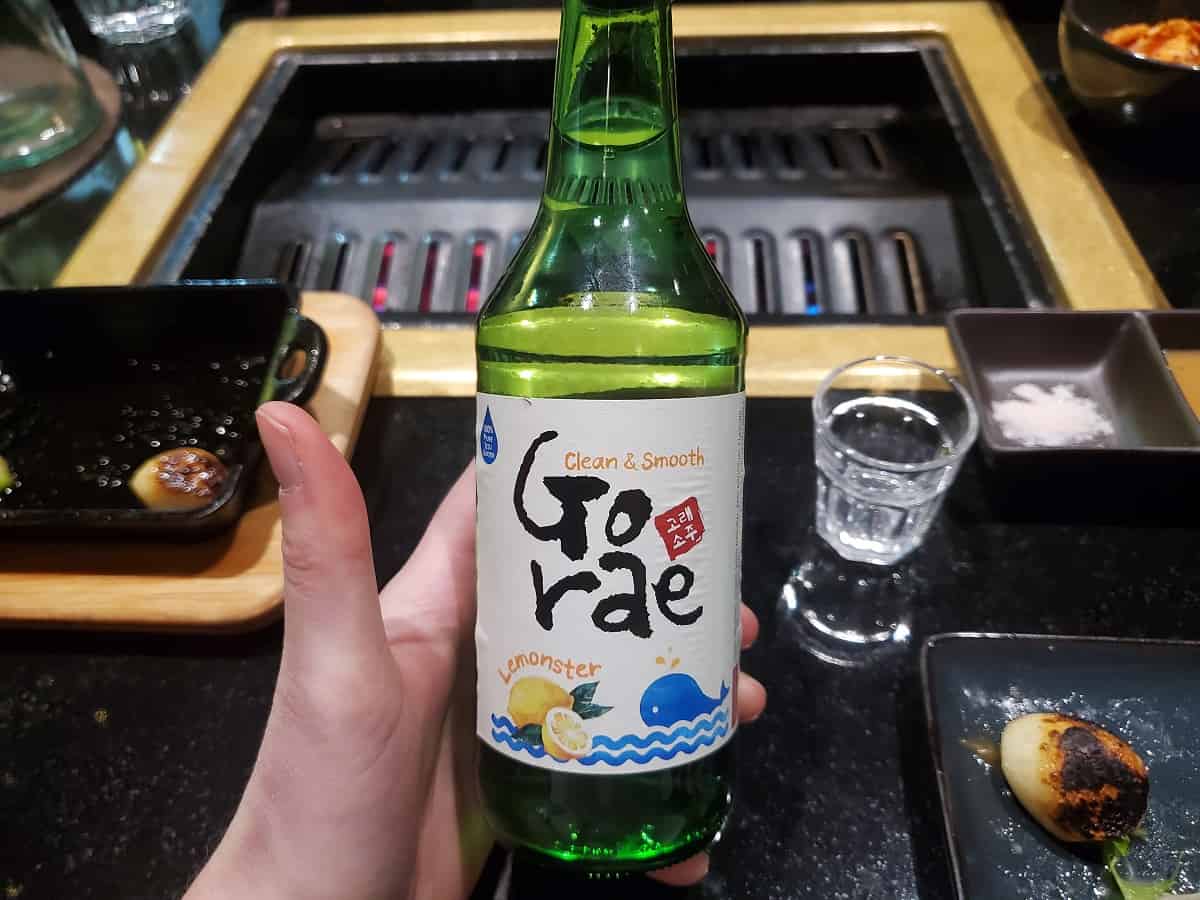
🍵 Eating and Drinking
When you're in South Korea, understanding the nuances in eating and drinking customs can greatly enhance your dining experience. Take note of these guidelines to avoid any faux pas at Korean BBQ and other public settings.
Alcohol Consumption
When indulging in Korea's robust drinking culture, it's important to be aware of how to responsibly enjoy beverages like soju, a popular Korean alcohol. If you're offered a drink, especially by someone older, it's polite to accept it with two hands.
Also, when it's your turn to pour, hold the bottle with your right hand while touching your right elbow with your left hand as a sign of respect. Remember, when drinking with elders, turn your head to the side as you take a sip or shot. This is a subtle but valued part of Korean etiquette that demonstrates your respect to those around you.
Table Manners
At the dinner table, avoid pointing with your chopsticks or leaving them sticking out of your rice bowl – both are considered poor etiquette. Instead, lay your chopsticks down on the table or a rest when not in use.
When you're eating, your rice and side dishes are typically enjoyed with a spoon, and chopsticks are reserved for picking up meats and any banchan (side dishes). It's generally rude to start eating before the oldest person at the table begins – showing humility and restraint in this way is another expression of respect for age and social rank.
Likewise, when using a spoon for soups or rice, it's customary to pick up your bowl with one hand and use your spoon with the other. Do not use chopsticks and spoons simultaneously, as it's seen as improper.
Tipping, common in many countries, is not customary in South Korea and can sometimes be seen as an insult. Over the years I've had more than one person chase me out of a restaurant in Korea, thinking I'd left behind my change by accident.

🌟 Language and Communication
While English may be widely studied in Korea, it's not always commonly spoken, especially outside major metropolitan areas. A grasp of basic Korean phrases and an understanding of non-verbal cues will greatly enhance your visit.
Learning Basic Korean Phrases
Before you journey to South Korea, gaining a knowledge of basic phrases in Korean can be incredibly helpful. Expressions such as "Hello" (Annyeonghaseyo), "Thank you" (Gamsahamnida), and "Excuse me" (Shillyehamnida) convey respect and effort to engage with the culture.
Keep a handy list or app like Papago readily accessible to help you with everyday communication. This gesture of attempting to speak the local language is often appreciated and can open doors to friendlier encounters.
Understanding Non-Verbal Cues
Non-verbal cues are vital in Korean communication. For instance, avoid pointing with your finger, which can be seen as rude; instead, use your whole hand or two or more fingers stacked together.
Another important aspect is to receive items, especially money or business cards, with both hands as a sign of respect. These details might seem minor but are integral to showing courtesy and cultural awareness in your interactions.
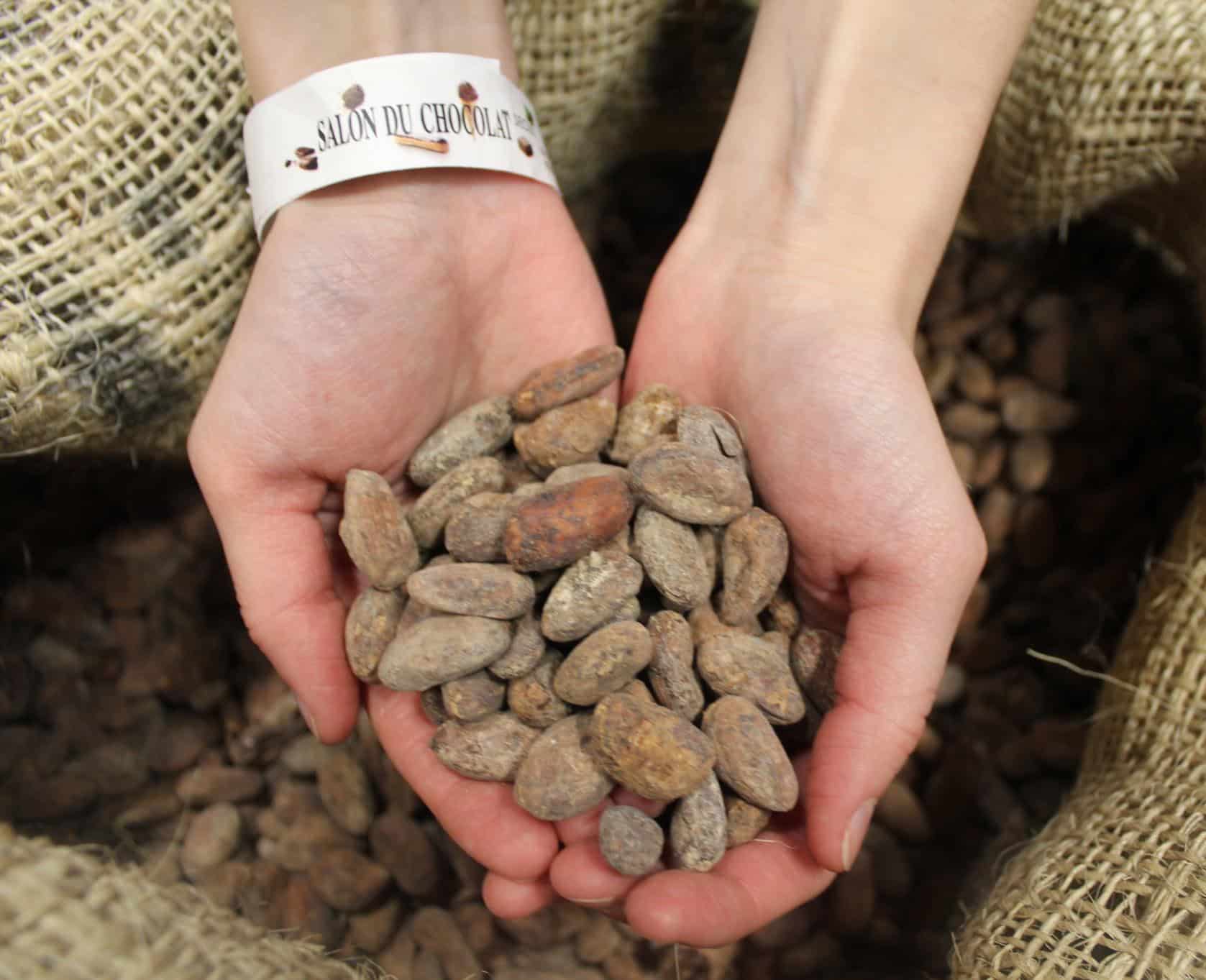
✔️ Location-Specific Do’s and Don’ts
When visiting certain types of locations in South Korea, such as revered temples and bustling urban districts, there are specific codes of conduct that you’ll want to observe to show respect and avoid offending locals.
Temple Visit Etiquette
When you step onto the tranquil grounds of a Korean temple, please keep in mind that these are places of worship and reflection. Dress modestly, covering your shoulders and knees, and remove your shoes before entering temple buildings.
Remain quiet and avoid using flash photography, especially during ceremonies or when worshippers are present, because they're not there for you. Remember - respect is paramount.
In the Noraebang
Even though Koreans appreciate singers and dancers, hitting the noraebang is an opportunity for everyone to shine. So please don’t use this opportunity to serenade them with ballads and hits you’ve learned before coming to Korea.
Instead, let others sing, hype them up, and only sing one song at a time when the moment comes. Also, try to keep the mood upbeat by avoiding ballads. Sing those only when you’re alone at a coin noraebang, instead.
Navigating the City
Even in vibrant urban centers like Seoul or Busan, there are always a few things locals just do differently. For instance, don't hail a taxi with your palm up; instead, wave with your palm facing down.
When using public transport, avoid sitting in seats reserved for the elderly or disabled, which are indicated by a special sign or seat color (usually bright pink).
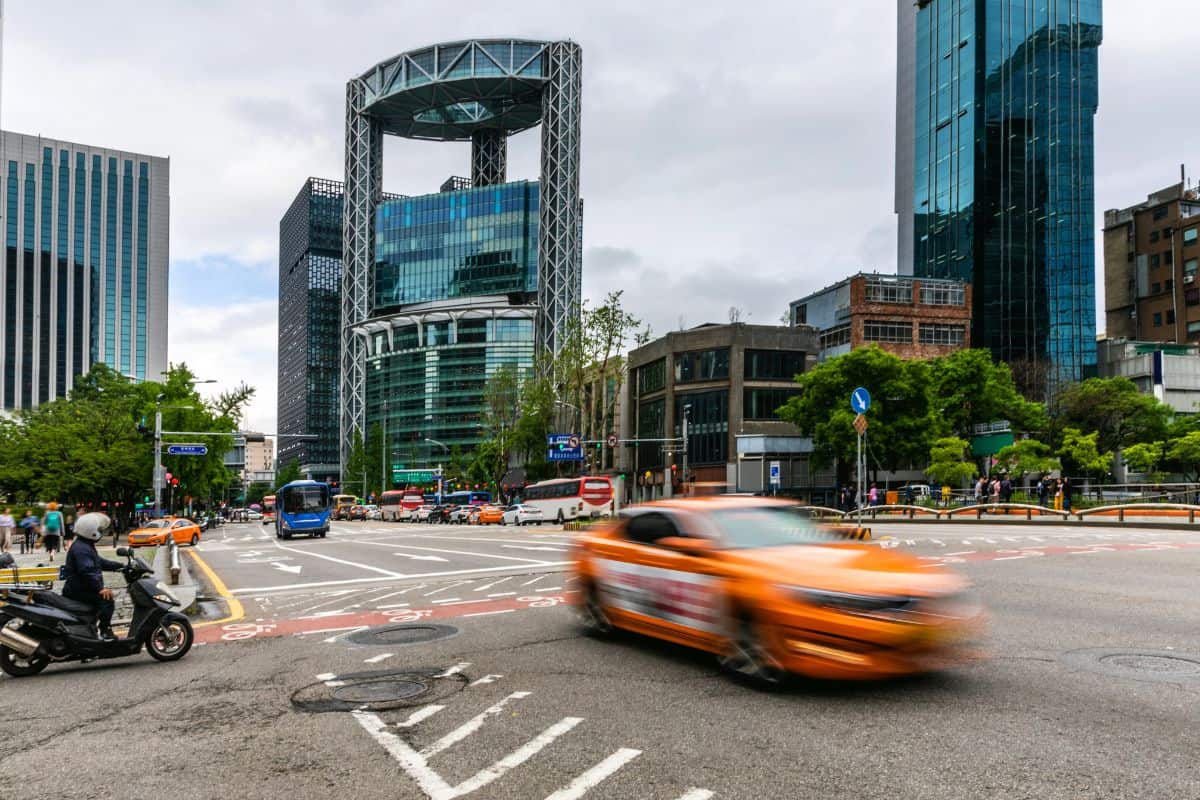
💡 Environmental Awareness
When you're in Korea, it's important to be aware of the ways the country looks after its environment, as there are specific guidelines about waste management and public expectations (despite the dearth of public trash cans).
Proper Waste Disposal
In Korea, sorting trash is more than just a suggestion— it's a rule. In hotels, hostels and other accomodation in Seoul, you'll find detailed recycling bins for paper, plastic, and other materials.
For residents, failing to sort correctly can lead to fines, so pay attention to designated bins, and know that you may need to hold onto your trash until you get to a shop or cafe where you can toss it.
Respecting Public Spaces
Respecting public spaces includes understanding the social etiquette around blowing your nose. It's considered impolite to do so in public; if you must, try to be discreet and use a tissue, then discard it in the nearest trash can.
Finbally, also remember that toilet paper often goes into a separate trash bin inside the stall, not in the toilet.
Toilet Paper
What not to do in South Korea is to think that public restrooms will always have toilet paper in every stall. This situation is not the case in Korea; bidets are also scarce. That’s why if you feel like going number 2, always make it a habit to bring toilet paper before you enter any stall, to save yourself from potential embarrassment.
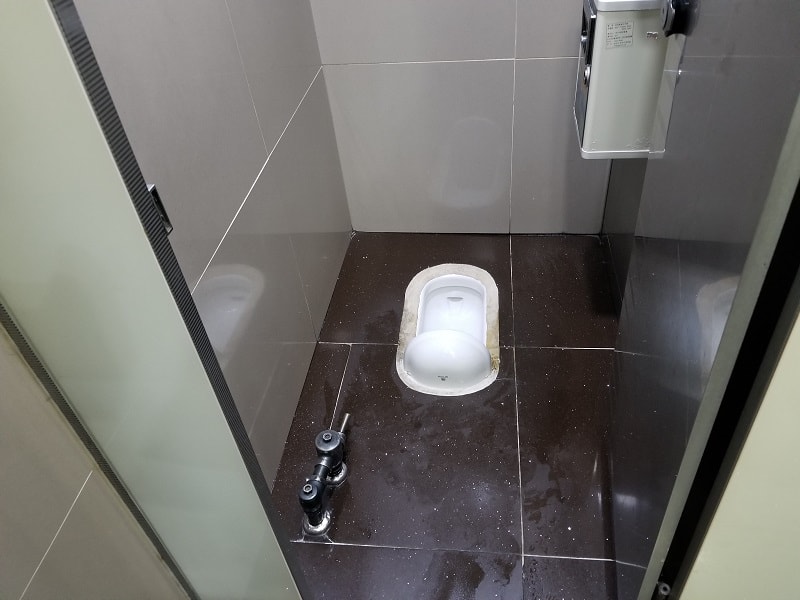
🙋🏼 Frequently Asked Questions
In South Korea, it's important not to sit in seats reserved for the elderly or disabled on public transportation. Additionally, talking loudly in public places is frowned upon, as it disturbs the quiet harmony and peace Koreans try to cultivate in shared spaces.
While South Korea is modern in many ways, it's advisable to avoid showing too much skin, particularly around the collarbones and shoulders, as this can be considered impolite or inappropriate.
Direct eye contact with older people while speaking, pointing with one finger, and refusing a drink offered by an elder or someone of higher status can be seen as disrespectful in Korean culture.
When dining, wait for elders to begin eating before you start and remember to use both hands when receiving or giving items, such as dishes or utensils, to show respect.
Use honorific titles and be aware of the Korean age hierarchy when addressing elders or people in authority. Speak politely and use a slight bow to show deference, if you're unsure of where someone stands.

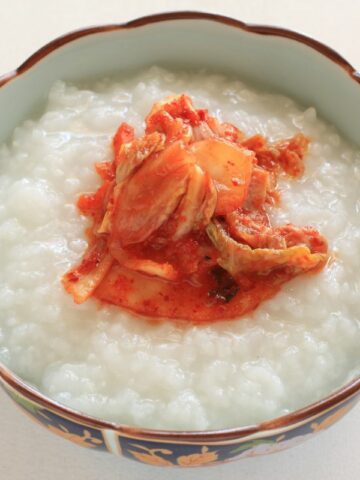



Comments
No Comments